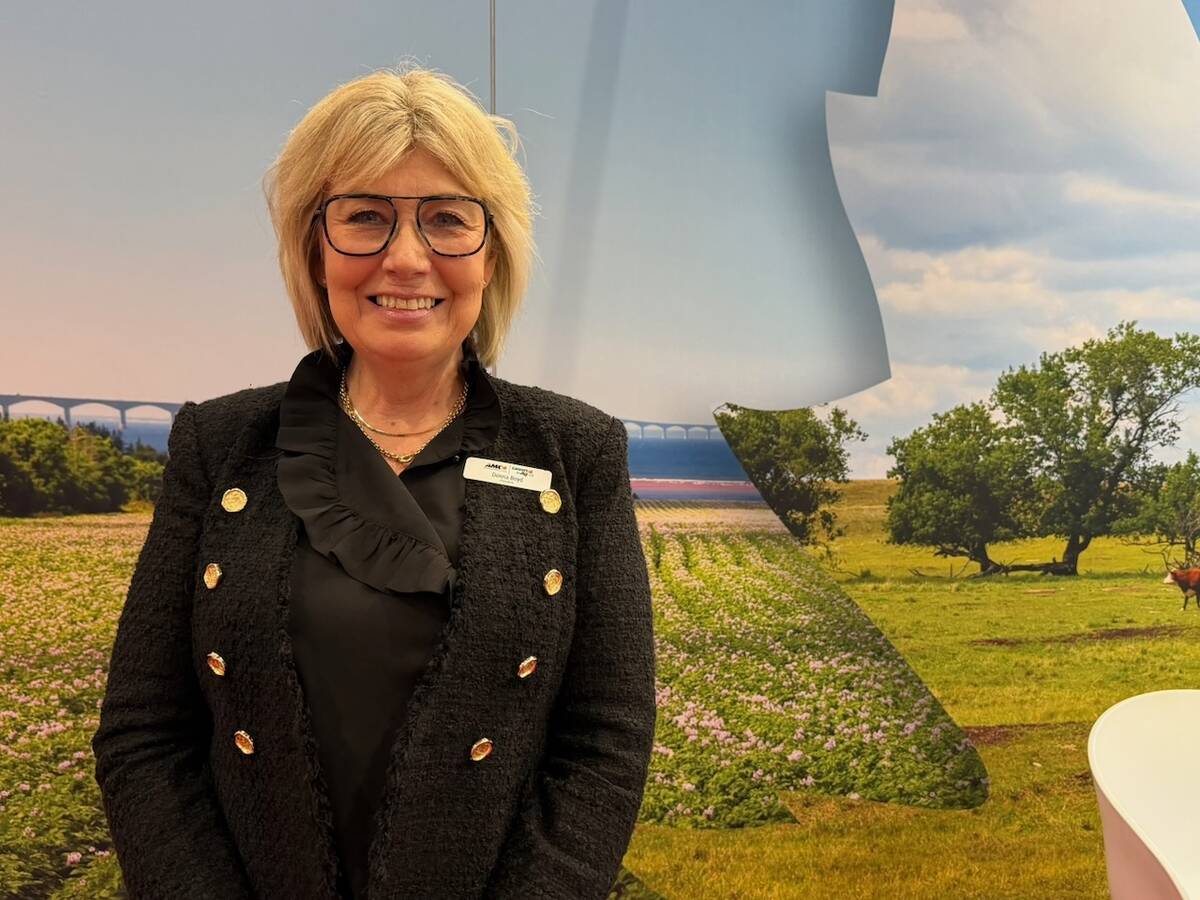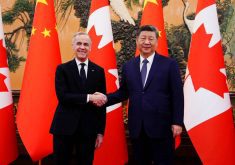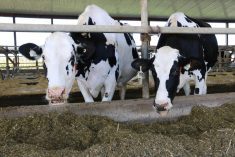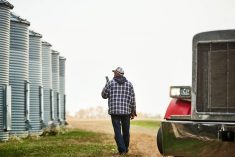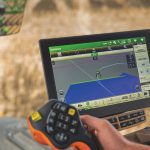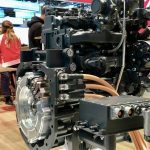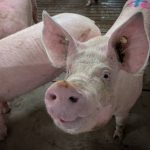Glacier FarmMedia – Canada’s agriculture machinery and technology companies showed up in record numbers at Agritechnica, driven by continuing growth potential and a need to diversify away from the United States.
Why it matters: Canadian manufacturing needs to diversify from so much reliance on the United States, and agriculture manufacturers are taking steps to do that.
Agricultural Manufacturers of Canada had its first display at the biannual Agritechnica show in Hanover, Germany, said chief executive officer Donna Boyd. Global marketing has always been part of the organization’s mandate, but a new export development strategy has added extra impetus.
Read Also
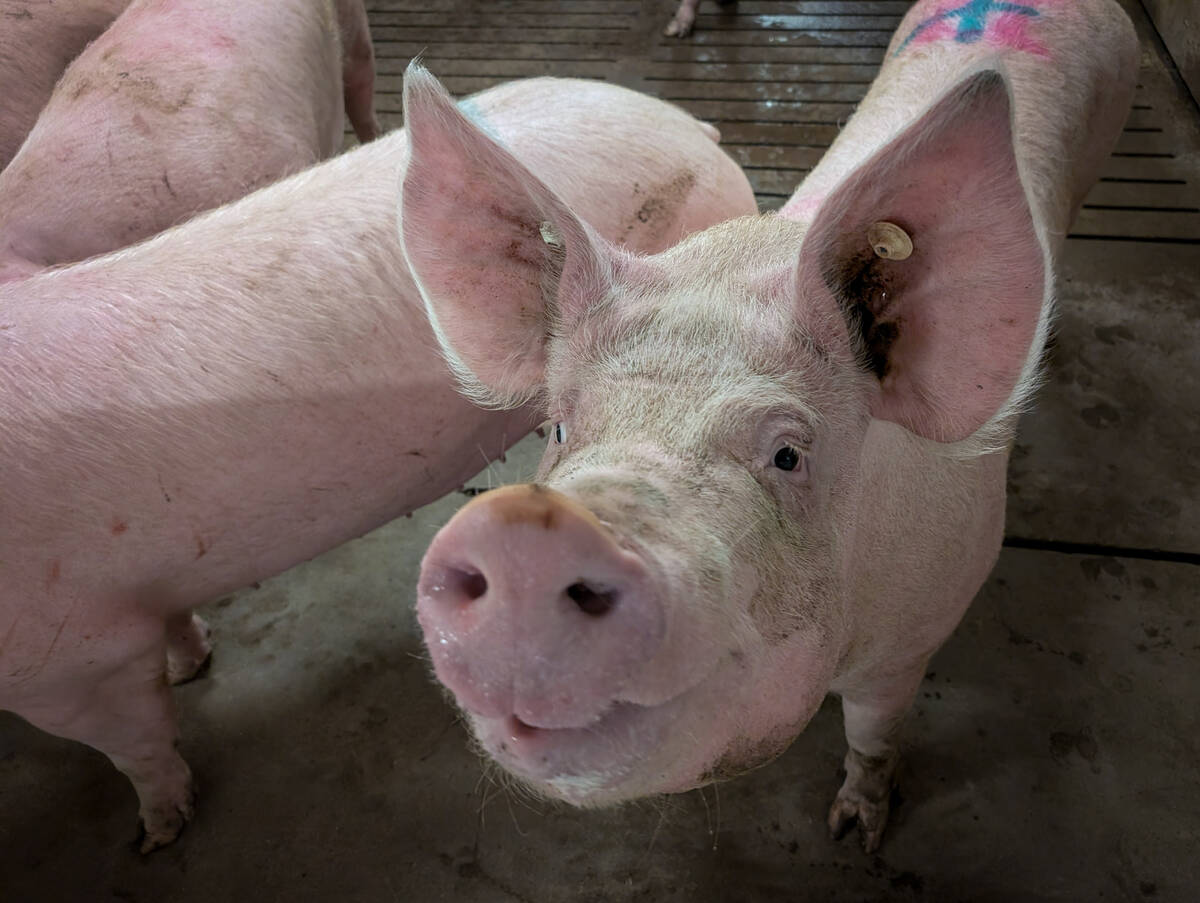
Spain detects first swine fever cases outside initial Barcelona outbreak zone
Two African swine fever cases have been detected in Spain among wild boar for the first time outside an original outbreak area near Barcelona, prompting additional restrictions on the movement of people and livestock, regional authorities in Catalonia said on Friday.
Read: More Agritechnica 2025 coverage with the Western Producer
That meant a new AMC display at the world’s largest machinery show.
“The pressures on ag and on manufacturing are immense,” said Boyd during an interview after the official opening of the Canada Pavilion.
“We have gone through fits and spirts for our members, but this one is a particularly challenging one.”
Prices have declined across major North American commodity crops, and tariffs and threats from the United States have made it more difficult to get products into that major market for Canadian equipment makers.

With a challenging trade environment can also come opportunities, said Chris Lane, president and CEO of the Saskatchewan Trade and Export Partnership, which had the display with the largest grouping of Canadian companies at the show.
“Canadian products are being embraced by other markets like they never have been before,” he said.
Companies are having conversations with individuals and finding new distribution routes, said Lane.
There were three areas at Agritechnica featuring Canadian companies: the STEP display, the AMC display and another smaller one featuring Manitoba companies. There are also companies that have their own displays independent of the three Canadian-branded areas.
Networking opportunities
The potential to make connections at Agritechnica brought numerous Canadian companies to the show for the first time.
One is Horst Welding, which owns a diverse number of farm manufacturing brands, including loader attachments, snow moving equipment, seeding equipment and hay handling equipment from its base in Ontario.
Horst Welding’s Gary Bouwers said the company is looking at new markets it hasn’t pursued before for exports, including Europe. It has historically sent most of its exports to the U.S. or Australia.
It’s not just access to the European market that brings people to Agritechnica, says Paul Latham with Horst Welding, it’s the international attendees at the show.
“Canadian manufacturers have a good reputation worldwide.”
At the STEP pavilion, which included 21 companies, Steve Rogoshewsky was hoping for new connections for his Adaptive Agriculture Solutions company, based in Saskatchewan.
Rogoshewsky’s company provides in-bin heating and a scalable bin monitoring solution.
“We’re excited to be here and expand our markets to Europe. Our product is perfected now in the harsh conditions of Canadian winter and it’s ready for expansion across the world.”
The ability for STEP to bring together companies from multiple provinces and making it easy for them to get to Agritechnica — handling bookings and shipping and logistics — has helped increase the numbers at the show, said Lane.
The organization has been bringing western Canadian agriculture technology companies to the show for 20 years.
“At Agritechnica, it’s hard to be small, so the bigger footprint you have, the more attention you can get collectively for our companies here,” he said.
“The Canada brand means a lot in Europe, so I think that helps, too.”
Thunderstruck Ag, a Saskatchewan manufacturer known for its concaves and other products for harvest and combine efficiency, is at its second Agritechnica.
President Jeremy Matuszewski said in one day at Agritechnica he talked to farmers from Croatia, Hungary and Denmark, along with some from Canada.
Canadians need to be exposed to the rest of the world, he said.
The country thinks it’s the best, he added, but the past year has shown that “there are a lot of places around the world, Brazil, Europe, where they’re using technology that we’re not looking at.”
The front half of the AMC Canada Pavilion was dominated by the distinctive orange and red of Versatile tractors making their way back to Agritechnica — and the European market.
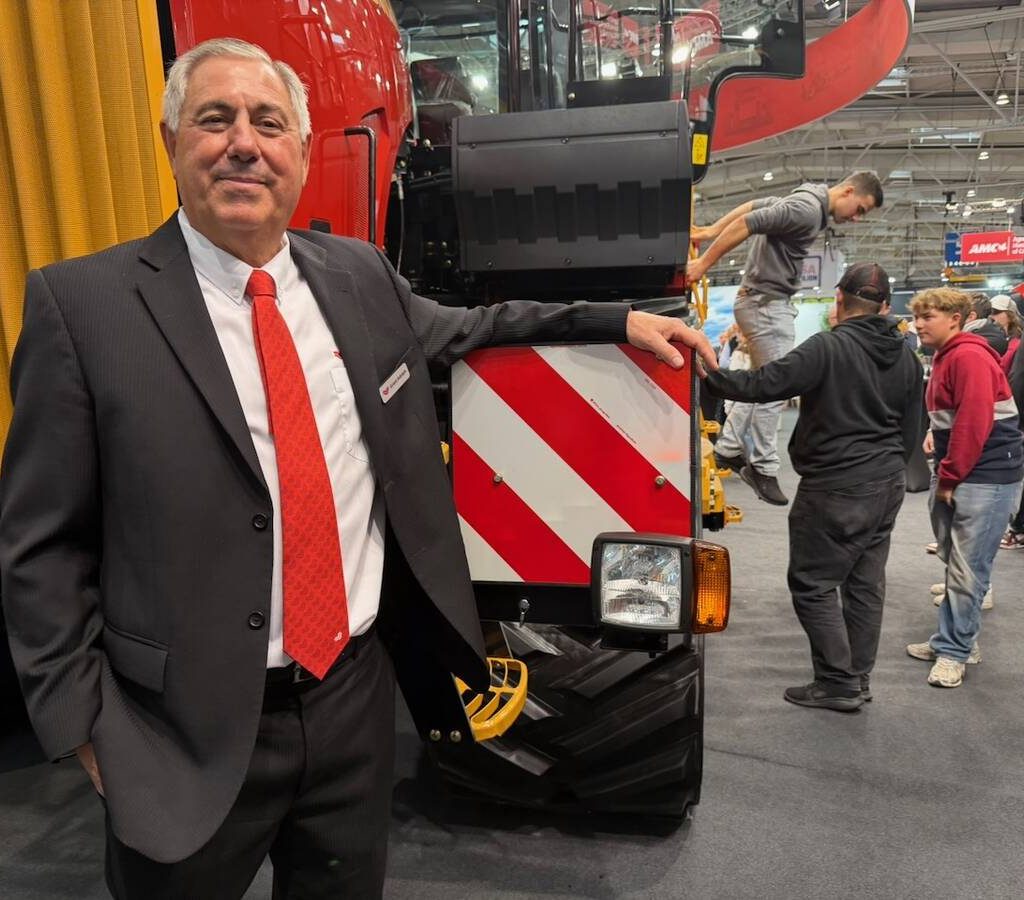
Canada’s only tractor manufacturer was hit by COVID-19 supply chain issues and knocked out of the market, said Grant Adolph, chair of the Buhler Group of Companies, which include Versatile and Farm King.
The company was also owned by Russian Rostelmash, which became a liability during the global backlash against Russia after its invasion of Ukraine.
Versatile was sold to the Basak Tractor division of OSKO Holding, a Turkish company, and that’s given it the opportunity to increase its global reach again.
Adolph said Versatile is looking to expand its dealer network in Europe and to bring its Genesis tractor to the continent. It will take about a year to meet regulations, but until then the company will have its large Delta Track and small four-wheel-drive tractors, which were already European Union approved, to sell in the market.
He also expected to see the Versatile line expand in North America with smaller tractors in the Basak Tractor lineup.
“Today, with uncertainty of our friends to the south, it’s probably the perfect time to be diversified.”
He called on Canadian governments to understand the importance of agriculture equipment to the country’s manufacturing exports and to support it.
The arrival of many new Canadian companies to Agritechnica should help make that case.


